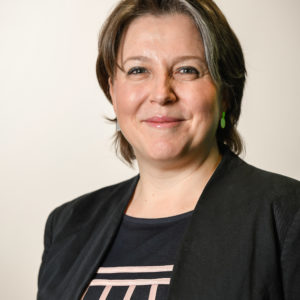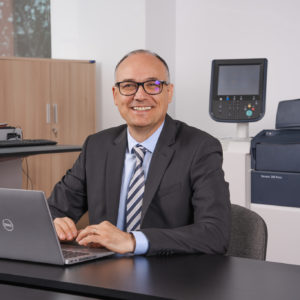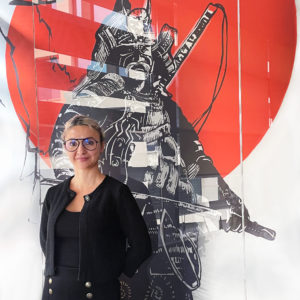:quality(80)/business-review.eu/wp-content/uploads/2022/10/hr-rom.jpg)
Gen Z gained a reputation for being flighty during the Great Resignation as they job hopped in search of better salaries and working conditions. Data provided by LinkedIn to Fortune in March found that workers switching jobs increased by 37.6 percent from 2021 to 2022, with Gen Z and millennials leading the way, at 59.6 percent and 34.8 percent, respectively.
By Romanita Oprea
There’s a sense that younger generations feel loyal to themselves and their careers over their companies, exacerbated by their experience with layoffs during the pandemic. Remote work has made it even more difficult for some workers to feel like they’re part of a company. “Younger workers are really looking for a sense of belonging in the onboarding process, especially with so many hybrid or fully remote roles,” Dave Carhart, vice president of people at performance management software company Lattice, told Fortune magazine in May.
“As an HR professional, I understand how important it is to effectively adapt the onboarding process to evolving needs, as well as to accommodate generational differences. As a result, we have constantly improved our onboarding process to answer any newcomer’s need for relevant information. We did notice two important traits among the young generations in the past few years: Gen Z and Millennials perceive work as an extension of their personality and always look for development opportunities. Young newcomers have a different relationship with work. Flexibility is key,” said Cristina Ulesan, human resources director at Brico Dépôt Romania.
Young people might work in bursts of several hours, then take a long break, then finish an assignment during what would normally be their time off. Work is included in the fabric of their being. “This further translates into more efficient communication, as they are able to express their needs clearly from the very beginning—be that work flexibility or involvement in strategic projects—, as well as into a need for connection with the company’s identity. Particularly in the case of Gen Z, identity is a big topic; in fact, it is the topic. So, they tend to ask questions about our sustainability and community initiatives, for example, as a quick check on whether they feel aligned with the company’s mission and values,” Ulesan adds.
As for development opportunities, at Brico Dépôt Romania, they have noticed that many young newcomers access training courses immediately after starting their job. They have colleagues that only started three weeks ago and have already taken part in several courses from the company’s training catalogue, with a distinct appetite for soft skills. Moreover, these employees want to understand the core business, and thus they are highly receptive to the onboarding programme, which starts with one full day spent in one of the company’s stores. “Irrespective of generation, our objective is for every single one of our colleagues to know the key elements of our strategy and to genuinely feel that we are all working towards a common goal. For the past three years, we have organised recurrent semi-informal meetings between our new colleagues and our CEO, using the framework as an opportunity to run them through our strategy and main company figures and, more recently, our values as well. Feedback is gathered after each meeting and it has been more than 95 percent positive,” Cristina Ulesan added. In fact, the company collects feedback along the entire employee journey. They check in with their peers yearly through the employee survey—one of Cristina’s favourite projects for its quality of providing a platform for consistent upward communication—whose results inform their policies not only in human resources, but also in other business areas. For instance, “we have continuously worked to simplify certain processes as a result of this feedback, using clear action plans. Once again, closing the feedback loop is key, proving theory right. When it comes to generational differences, our survey results confirm that Gen Z and Millennials, which together make up about the same share as Gen X in our company, judge purposeful work, as well as the company’s mission, by stricter standards. As such, it’s a trait that continues well past the onboarding period,” commented the Brico Dépôt representative.
According to Dana Dobrescu, corporate & government affairs manager at Mondelēz Romania, the onboarding process is clearly more difficult in a virtual environment. Technical knowledge can definitely be acquired in a flexible setup, but the connection to company culture, networking within the company, and getting a sense of how the company really is beyond the formal employer branding proposition are trickier. “We also had this kind of feedback from newcomers who joined the company during the pandemic. That’s why I think it is important to look at the onboarding process with special care these days. At Mondelez, we maintain a very flexible approach, with a hybrid working model. We encourage the return to the office for collaborative purposes, for all hands-on deck gatherings, and for celebrations—like the recent 10-year anniversary of Mondelez,” Dobrescu explained. At the same time, the company also encourages each function to have conversations about their way of working, so as to balance the need for office-based connection and individual needs. They also try to understand that different people have different approaches: some of them really cannot work from home, while others only want to come to the office in certain circumstances, so the level of flexibility varies. “Our employees take the most appropriate decision together with their teams and they have access to on-demand sessions with the HR, communication, and leadership teams to understand how to frame the conversation within their team to make the best choices,” she added.
Cristina Mancas, HR VP SEE at Schneider Electric, acknowledges that the past three years have encouraged too many virtual meetings and too few live ones. “We do not want to live our lives online, so we create setups for people to meet and discuss in a pleasant and structured way, to make sure they still have an opportunity to get to know each other on a personal level, as this always makes collaboration easier.” This is precisely the reason why the company’s latest initiative was to set up a breakfast with the Country Manager, where about a dozen people met with Lucian Enaru and talked business and personal matters—as appropriate—around nice food and good coffee.
Based on his experience, Gabriel Pantelimon, general manager at Xerox Romania & Turkey, believes that what matters more for the younger employees is the sense of balance between their personal and professional lives rather than the sense of belonging. Younger workers come with their circle of friends and former colleagues; they are digital natives, so they are used to communicating all the time anyway. They look for jobs that make sense to them financially and satisfy them professionally, but they draw a line between office hours and personal time.
“If managers fail to understand that, and if they don’t understand that managing their people’s time and their own time is one of the most important skills they need to master, then they may be surprised by ‘quiet quitting.’ That is the younger generation’s coping mechanism with the clear danger of burnout, which older generations have invariably gone through. Avoiding quiet quitting by rigorously and meaningfully managing your team’s time and inspiring people to be productive and effective within a set daily timeframe is your key job as a manager,” the Xerox representative argued.
According to Adela Negru, chief human resources officer at NTT DATA Romania, people’s behavior in relation to the workplace has changed radically in the last two years. „Regardless of which generation they belong to, people today are experiencing emancipation from the classic concept of employer. Whereas during the industrial revolution, the employer dictated the direction and the employee had no choice but to follow it, now the employee-employer relationship is gradually transforming into a partnership, where the employee has a big say in the directions that can influence the quality of their life at work.,” said Adela Negru. Before 2020, the focus was on generation Y and Z, as different behaviors were observed from baby boomers. Even then, there was a desire to move fast, to have meaning in what they do, and the freedom to choose what is best for them was a strong stigma.
„Today we are witnessing a new revolution, which is gradually changing the classic perception of the employer-employee relationship. It’s called the grand bargain, where people negotiate to gain their happiness, purpose, and meaning in the company, and access to digital tools,” added Adela Negru.
Fewer connections?
According to Fortune magazine, younger workers could find a return to the office to be beneficial, as former LinkedIn chief HR officer Steve Cadigan recently told CNBC. Cadigan, who wrote about the future of work in his book Workquake, noted that going into the office might help Millennials and Gen Z ease their feelings of frustration over being less connected to their colleagues in a remote climate. How do companies in Romania feel about this? There have been many changes and trends gaining traction during the pandemic years. “Research is now struggling to catch up with the multiple effects generated by WFH—and now by the hybrid work system—on employees from various age groups, and some of the conclusions are contradictory at times. What we are seeing now is that the vast majority of employees would only consider a hybrid work format, if not to work from home all the time,” said Gabriel Pantelimon. Most of his team is very homogeneous, built during the pre-pandemic period, and it works well. And, according to him, it comes easy to them to switch between work systems and still be productive, because they are used to the company requirements and standards of excellence and they know, understand, and embrace its values.
Of course, for a generation that changes the Zoom at school for the Teams at work, the experience can be disconcerting and alienating at first. “The difference we’re seeing in onboarding processes is quite significant. New employees no longer have a chance to ease into their own professions, ask around or check in with their peers or simply have a coffee with them and actually breathe in the organisational culture. We have to accept this and find ways to somehow compensate for it. But I don’t think that younger employees would be interested in having a full-time office schedule just to be around their new co-workers; quite the opposite,” Gabriel Pantelimon said.
For the Xerox team, working from home used to be the equivalent of not working at all; it was socially inacceptable and very hard to comprehend. To the new generations, some of which have spent half the time at the office and half at home during the pandemic, WFH comes naturally. “I don’t think they know what they are missing and I have not seen people requesting full time at the office. It is therefore the management’s job to find a way to instill the company’s organisational values remotely, to create events or meaningful offline gatherings that bring people together and get them to understand and feel the team spirit, so that incoming professionals can feel ‘at home’ at the office,” he added.
You can’t define an onboarding process or a return to the office without asking the key participants in the process what they need to return to. In the past, we thought we knew the solution just because years of experience have taught us how employees think, well today, it is futile to start something like this without understanding what experience people want in the workplace. Imposing a working model without involving all stakeholders will have a catastrophic effect, it will generate frustration and then attrition. We currently still work in a hybrid system, giving colleagues the freedom to decide whether they want to work from the office or from home,” said the NTT Data representative.
According to Dana Dobrescu, this situation suits all employees, whether they belong to the Gen Z or Millennial group, from the need for social connection perspective. We’re talking about a basic human need and, from a socio-psychological point of view, the main driver of personal happiness. “If we redesign the office space to enable connection, collaboration, co-creation, and celebration, then it will make sense for each of us to come back to the office, while still maintaining a flexible approach. Redesign means a rearrangement of the physical space—with more collaborative places and with modern formats that go beyond meeting rooms—as well as a change of mindset.”
No one wants to be invited to the office just to send emails or spend time in calls. “But we may want to come from time to time to brainstorm together, to have an informal chat or a productive meeting where we work on a joint project, with a common vision. Furthermore, coming to the office benefits new employees during their induction period, as it allows them to connect deeply to the company culture, its way of working, and, more importantly, to the people—both teammates and those in other functions. It’s not the fixed schedules that matter, those two or three days per week, but rather what happens at the workplace while people are there,” Dobrescu concluded.
What they’ve found at Brico Dépôt Romania is that team members across all generational segments want to recapture connection with their peers, but that at the same time they value flexibility more than ever. Their findings confirm recent conclusions from Microsoft’s Work Trend Index, which suggested that employees were motivated by the promise of socialising with co-workers.
“This naturally poses a challenge, but also creates an opportunity. We constantly look for ways to engage our colleagues at the office, from simple breaks to celebrate certain occasions to organising more ample semi-formal events, during which our leadership team or high-level guests from the group discuss business news with everyone in attendance. At the same time, since anxiety is a more prevalent condition among Gen Z and Millennials, we have set up a counselling service delivered by an external provider for EAP (employee assistance programme), available 24/7 to all colleagues and their families. Connection remains key to addressing anxiety or frustration, but professional services can close the gap. Additionally, we also organise sessions around mental health as a critical pillar of wellbeing, such as the one organised by our colleagues from Kingfisher on October 10, World Mental Health Day,” Cristina Ulesan explained.
At NTT DATA Romania they started in May a program called Love your People, designed to capture the voice of all generations, their needs, and their experience at work. Every individual is unique, feelings become experiences, and if employers want to remain attractive to their people, they need to reinvent themselves. Through the Design Thinking methodology, they set out on a new path, forget everything they knew worked before the pandemic and redefine in this program the new direction of caring for the employee, a direction that must build the partnership the employee wants.In Cristina Mancas’s opinion, the WFH or hybrid model isn’t a bigger source of frustration than the full-time office schedule used to be. And that’s because Schneider Electric looks for people with strong work ethics, who understand that a company is just as productive and well-performing as its people are. So, they can work from wherever they need to be. Some feel more comfortable coming into the office and meeting with their colleagues or managers; others need to take care of their children or limit their time in traffic so they prefer to stay home. “We discuss and accommodate their needs based on trust and openness from both sides. And, of course, we evaluate performance and job satisfaction. We always listen and observe when it’s time to make a change. Given the results we have had lately, on both counts, I can say we’ve managed to find a balance that works well for our colleagues,” Mancas said.
Moreover, as Adela Negru pointed out, the new generations have been a very good example for everyone to fight for what matters to you as an individual. Professional and personal life have gradually started to merge, they are no longer two separate things, and together they define the quality of life for each individual.
In other words, „we need to get out of the classic depersonalized HR and enter a new one where the employee journey is customized to the wishes of each colleague. Many studies show that people do not want to return to the office because it unbalances their personal life. But I’m sure if we could talk to each employee individually, to understand the need, we would be able to find ways to make a return to the office attractive, because it meets that person’s need. In reality, we are all aware that working only from home is not healthy for anyone’s wellbeing. But some people don’t just work from home, some travel, because they like to combine work and travel,” said NTT Data Romania’s chief human resources officer. After all, personally she does not see an unbridgeable gap between the generations or between employee and employer in general. What Adela Negru believe is needed is active listening, empathy, and a solution based on real needs.
The rise of quiet quitting
For the last few months, the term “quiet quitting” has been everywhere on social media, and it’s defined as not taking on any more responsibilities than your job description requires. Popularised among Gen Z and millennial workers, the phrase is often tied to the pandemic’s disruption of traditional office culture.
While the exact phrase may eventually fall out of vogue, the behaviour it describes seems to have significant weight, with 82 percent of young workers saying that doing the minimum required for their job appeals to them, according to a new study conducted by Axios and research firm The Generation Lab, which involved 828 participants aged 18 to 29. Of those surveyed, just 5 percent said that doing the minimum at work was completely unappealing to them, with 13 percent saying it was “not very appealing.” The biggest group, those who responded “pretty appealing,” made up 39 percent of the total, while 31 percent responded with “extremely appealing.” Twelve percent said that they were already doing the minimum. The biggest motivating force on the job for the survey’s respondents was money, at 52 percent. Skills and experience followed at 20 percent, and purpose and mission at 15 percent. Only 8 percent of respondents said their main motivator was “fun.”
The survey also asked respondents to rank what they considered to be important in their lives. Most selected either “family” or “mental health” as priorities, at 36 percent and 30 percent, respectively. Just 6 percent of respondents ranked work as being the most important.
Moreover, around half of US workers stated that they were “not engaged” at work, according to a Gallup survey released in September. That means that they’re feeling detached from work and doing the bare minimum—something similar to quiet quitting.
But what is the situation like in Romania? According to Dana Dobrescu, Gen Z is very open and genuine and has an active radar scanning for authenticity and the meaning behind actions. They also look at employers in a broader context, as they are interested in a company’s ESG platform and they ask questions—as early as the recruitment phase, but also afterwards—about concrete programmes and clear actions the company takes for the environment and communities. “Gen Z is acting from a place of meaning, trying to match the company’s purpose with their personal purpose. So, for the young generation, a job is not just an activity they perform according to the job description; it’s rather an enabler of personal development. That’s why we’re going to see many Gen Z employees having initiative, challenging the status quo, asking and questioning, voicing their opinion, looking impatient for positive change, not being afraid of sudden disruptions. And if we look at their daring attitude without resentment and try to learn from their perspective, we can foster change and improve ways of working inside our companies, especially now that we have an open window for change, due to the pandemic’s impact on the working environment.”
“We are attuned to Western work trends and regularly check in to see to what extent they are being adopted locally. In this case, it’s a trend that has enjoyed wide media coverage, so it might be perceived as more inflated than it actually is. In our case, colleagues continue to be engaged. Retail is a business that never sleeps; we have ambitious objectives and equally ambitious projects that require involvement and sustained resilience,” said Brico Dépôt’s Cristina Ulesan. Her company’s latest annual survey revealed a very good level of engagement. Drivers such as goal setting, management support, meaningful work, and freedom of opinion were at the top. “This is due to our strategic approach to fostering a work environment where colleagues feel supported in their activity, as well as to being consistent in our transparent communication, both horizontally and vertically. This also means that we continue to stay alert and work on the areas where our colleagues think that further developments are needed.”
In her turn, Cristina Mancas of Schneider Electric is very happy to see this connection between engagement and quiet quitting. “We should not take a person’s wish to only work during a set schedule as quitting. We all know—or should know—our limits and we all try to manage our time as well as we can. As an HR department, we provide training in mental wellbeing, time management, financial management, and we try to give people the tools they need to manage their own performance, to find ways to do their jobs as well as they possibly can, in the most effective way possible, so that there is ample room left for personal life and socialisation and a form of balance is reached. You cannot have decades-long loyalty, as we have and want to continue to have in this organisation, without balance.”
According to Dana Dobrescu, the abovementioned study found that disengagement has increased lately among the new generations. Gallup also highlighted some changes that could be made in the workplace in order to boost engagement, such as employee development instead of employee satisfaction, a strength-based workplace, and purpose. “I think Romanian employees are also reconsidering their relationship with the workplace as a consequence of the pandemic, which had a direct and brutal influence on us all and made each of us reassess our personal health and wellbeing, our relationships with our loved ones, and our priorities.” She also believes that this is the reason why we’re now seeing so many people asking about flexible work during recruitment interviews, and why this is seen as a competitive advantage. She is a firm believer that companies, be they Romanian firms, multinationals or start-ups, have one option: they should offer flexible benefits for employees, that are meaningful and relevant at the individual level and focused on personal growth needs. “We know that employees are engaged when they are happy, and employees are happy when they are happy people. There is a direct relationship between happiness and productivity. Let’s look at the drivers of personal happiness—social connection, self-actualisation, compassion, gratitude, finding significance, having a clear and inspiring purpose—and address them in the workplace, and this will unlock and boost engagement,” added the Mondelēz Romania representative.
Making work more attractive
In the post-pandemic era, the office risks being perceived as sterile and distant in comparison to the comfort of our homes. Therefore, the Brico Dépôt Romania representative truly believes that, in many ways, this leads to nothing less than a revolution: the office is evolving from a functional space to a means of communicating our values and identity, an environment that has a role in attracting and retaining talent. In order to decide on a way forward, they had to check in with their head office colleagues: do they want to get back to the office? Or, put simply, what do they want? They gathered information by organising various listening groups, one of them with the help of iSense Solutions, who set up a Brico online community as the source of truly valuable feedback. A sample of colleagues from the head office, covering as many segments as possible, provided a comprehensive view of their needs. The conclusions of this research were the foundations of the company’s hybrid work system, with 2 days per week at the office, put in place gradually since early spring.
“With the hybrid system in place, we looked into ways of reconnecting. We organised healthy food and coffee tastings and involved our colleagues at the head office in the process of selecting a coffee provider by vote. Other countries’ national days are also opportunities for us to gather in common spaces and enjoy a break with traditional snacks. These are simple, yet highly impactful initiatives,” said Cristina Ulesan. Moving forward, they’ll continue to take advantage of various occasions to connect. Next on the list is Halloween, followed of course by Christmas.
Furthermore, given the nature of the business, about 90 percent of the team—or bricolleagues, as they call everyone at Brico—was on the front lines during the pandemic, in no fewer than 25 cities. The challenge was therefore to act as one team regardless of each person’s place of work, so the company used every opportunity to boost engagement on its internal communication channels and, in this sense, seek uniform involvement across its network. One such example was the Children’s Day project, where more than 90 percent of participants came from the stores.
“I firmly believe that it is essential for us to remain our colleagues’ active choice of employer. And just like in any relationship, this entails constant effort and transparent communication. What’s also important is acknowledging that it is neither an easy endeavour nor something that can be done with a single silver bullet,” Ulesan concluded.
The policy at Schneider Electric is to not differentiate by generation. When they hire, they look for individuals with a specific set of skills and a clear set of values that would make them quickly fit into the organisational culture. They may well be part of the Z, Millennial or X generation—age is really just a number. “We recently celebrated our 25th anniversary as a company in Romania and when we held our event at the Romanian Athenaeum, we were pleased to see colleagues who have been with the company for 10, 15, 20 years, but also some that have just recently graduated university. We look for individuals with strong work ethics and a desire to build a meaningful professional career within a global organisation. You can find such individuals in any generation bracket, if you look closely enough,” Cristina Mancas argued.
Today, when it comes to the younger generations, Schneider Electric’s representatives often host Open Days for students to take a look at who they are and how they are organised, and also welcome students in their internship programme, called Electrify your Career, whereby young professionals can come into the organisation, work with the team, discover opportunities for themselves, and make an informed decision to either stay or pursue a different career.
“Some of our current team members started their career with us as interns. We need to remember that people are people. It’s true that the collective experience of entire generations might be different from one another, but here at Schneider we look for the things that unite us rather than those that divide us. It is the backbone of our organisational culture. The younger generations might be digitally native, but this does not mean that the older ones haven’t embraced digital transformation just as well. After all, we look for people with open minds who are able to grasp at any opportunity to evolve professionally, and the digital transformation of an organisation is just that: an evolution of people that’s supported by increasingly sophisticated and useful technologies,” Mancas concluded.



:quality(80)/business-review.eu/wp-content/uploads/2024/07/vodafone-RO.jpg)








:quality(80)/business-review.eu/wp-content/uploads/2024/06/22C0420_006.jpg)

:quality(80)/business-review.eu/wp-content/uploads/2024/06/COVER-1-4.jpg)



:quality(50)/business-review.eu/wp-content/uploads/2024/01/NTTD_team_Top-Employer-2024-NTT-DATA-Romania.jpg)
:quality(50)/business-review.eu/wp-content/uploads/2023/12/NTTDATAROMANIA.jpg)
:quality(50)/business-review.eu/wp-content/uploads/2023/11/trust-expert.png)
:quality(80)/business-review.eu/wp-content/uploads/2024/06/br-june-2.jpg)
:quality(50)/business-review.eu/wp-content/uploads/2024/07/BeFunky-collage-37-scaled.jpg)
:quality(50)/business-review.eu/wp-content/uploads/2024/07/04_ThinkPad_T14s_6_Business_Coworking.jpg)
:quality(50)/business-review.eu/wp-content/uploads/2024/07/Iulia-Surugiu-scaled.jpg)